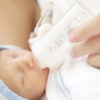![Inclined Sleepers and Other Baby Registry Items to Avoid From American Academy Pediatrics: Having a baby is an incredibly exciting time! Many parents set up baby registries for items that they believe their baby will need. However, it’s important to know that some popular products are unnecessary and can actually be dangerous for infants. Examples include inclined sleepers, positioners, and crib bumpers. Each year, […]](https://georgetowndocs.com/wp-content/uploads/2021/09/17.png)
From American Academy Pediatrics:
Having a baby is an incredibly exciting time! Many parents set up baby registries for items that they believe their baby will need. However, it’s important to know that some popular products are unnecessary and can actually be dangerous for infants. Examples include inclined sleepers, positioners, and crib bumpers.
Each year, about 3,400 infants in the United States die unexpectedly during sleep. This can happen from accidental suffocation, sudden infant death syndrome (SIDS), or unknown causes.
To help prevent these deaths, the American Academy of Pediatrics recommends that all infants should sleep on flat and firm surfaces. Babies should sleep by themselves, without any bumpers, soft bedding, pillows, or stuffed toys. Crib bumpers and inclined infant sleeper products can cause a baby to suffocate. We also advise against using products that are for infant bedsharing with parents.
New safety standards on the way
A safe sleep environment is so important that the U.S. Consumer Product Safety Commission (CPSC) approved a federal safety standard for infant sleep products in June 2021. Starting in mid-2022, this standard will help get rid of potentially dangerous baby sleep products such as inclined sleepers, in-bed sleepers, loungers, and travel/compact sleepers. These products will have to meet the same CPSC standards that are already in place for cribs, bassinets, play yards, and bedside sleepers.
Here’s why these and other dangerous infant sleep products should stay off your registry and out of your home.
Inclined sleepers and positioners
These are sometimes called baby nests, docks, pods, loungers, rockers, or nappers. Infant positioners and inclined sleepers have been popular items on baby registry lists for years. But until mid-2022, these products are not regulated and have no safety standards.
The CPSC says that sleep products that incline more than 10 degrees are not safe. Soft and plush sleep surfaces are also dangerous. Inclined sleepers allow babies to sleep at a 30-degree angle. Infants placed in these products may fall asleep in a chin-to-chest position, which can restrict their airway. They can also roll out of the devices and become trapped under them. Inclined sleepers have been tied to at least 94 deaths.
With sleep positioners, babies can suffocate after rolling onto their stomachs since they can’t lift their heads. The soft padding can make it difficult to breathe if a baby’s face presses against it.
Crib bumpers
Crib bumpers were long considered staples of nursery décor. They were originally intended to cushion babies from the crib slats. Crib bumpers are dangerous because of the risk of suffocation, entrapment, and strangulation. Plus, older babies may use the bumpers to stand on and climb out of the crib, creating a fall risk. Crib bumpers have been linked to at least 83 infant deaths in the past 30 years.
In addition to traditional padded bumpers, stores now sell mesh bumpers and vertical crib liners. But even these can get loose and become a strangulation risk. Babies can also get trapped between them and the crib mattress.
There is no evidence that crib bumpers—of any kind—prevent injury in young infants.
Cribs today are regulated by the CPSC and have updated safety standards. The slats are closer together to prevent your baby’s head from getting stuck. This means that bumpers are not only dangerous, but unnecessary. Maybe you’re concerned about your child’s leg getting stuck between crib slats. If so, use a wearable blanket or sleeping sack that’s the right size for your baby.
Why are these products still sold?
Unfortunately, the new regulations don’t take effect until mid-2022, meaning that inclined sleepers and positioners will still be available. As for crib bumpers, the CPSC plans to review federal safety standards for them later this year. We continue to urge the CPSC to ban all these dangerous infant sleep-related products.
A bill that would prohibit crib bumpers was introduced in Congress in 2021 too. Known as the Safe Cribs Act, this bill would make it illegal to sell, distribute, manufacture, or import crib bumpers. The bill’s sponsors are concerned that parents will keep buying these products, not realizing that they’re potentially hazardous.
Some stores, online retailers, cities, and states, have already stopped selling or have banned inclined sleepers and crib bumpers. Some companies have also issued voluntary recalls of these products.
Remember
Even in areas where these dangerous products are banned, they can still turn up at secondhand stores or garage sales. It’s important to check the CPSC website to see if products have been recalled before using them. Also, make sure anyone who watches your child knows about recalled and unsafe products.
It’s also important to keep in mind that your baby should only sleep in products that are designed to be safe sleep spaces, like cribs, bassinets, and portable play yards. Other products like swings, reclined seats, bouncers, and other sitting or positioning devices are not safe for sleep. If your baby falls asleep in one of these, move her to a safe sleep space right away.
If you have any questions about safe sleep products for your baby, talk with your pediatrician.



